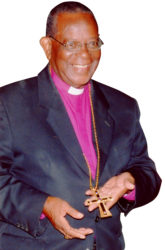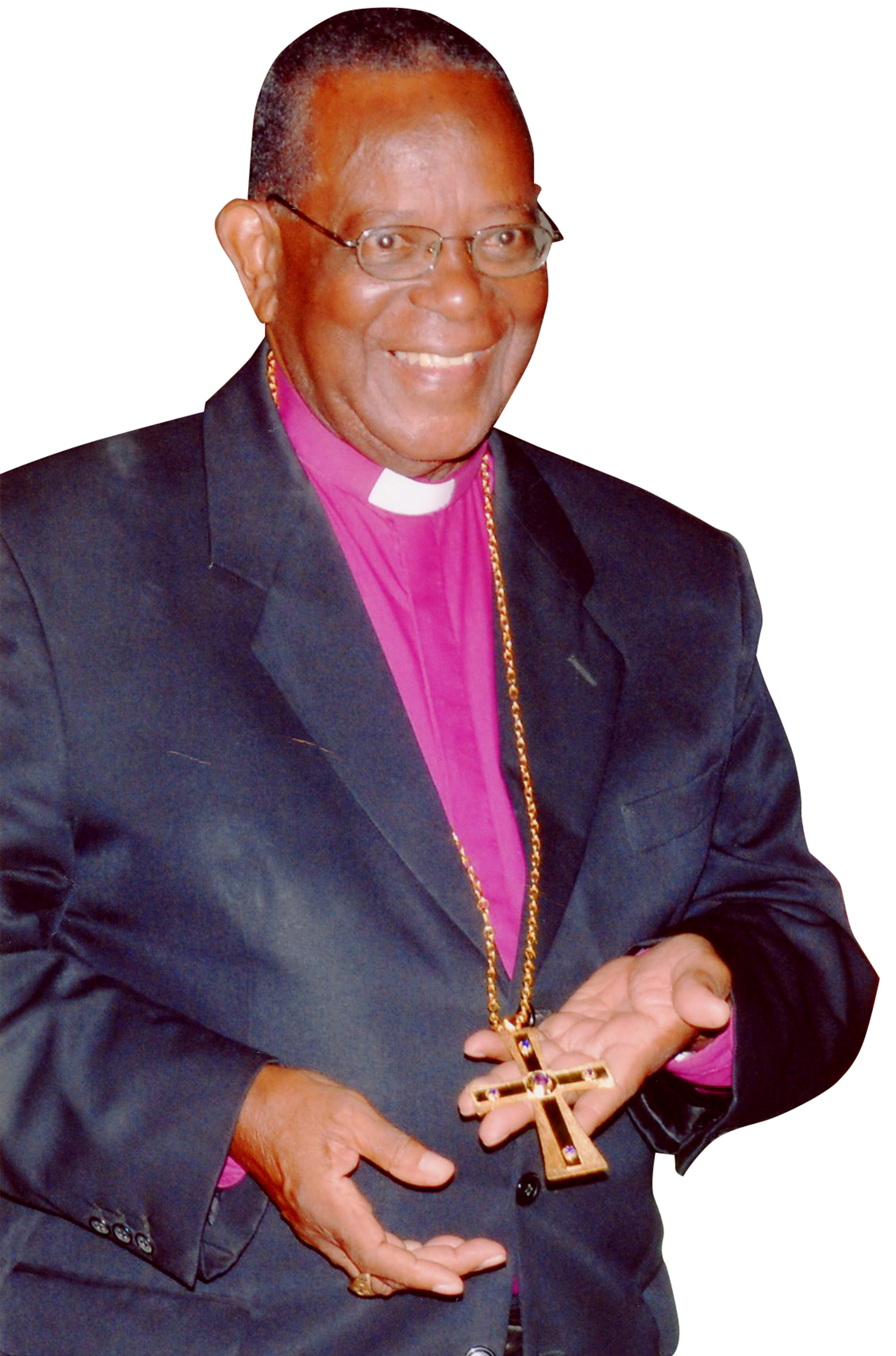By Cary Fraser
Bishop Randolph George’s life was testament to the power of faith, as a commitment to God expressed through the embrace of service to the human community. As a religious leader living through troubled times, Bishop George was guided by his profound faith in providing leadership to the communities where he served, and demonstrated the qualities of humility and dignity that define the lives of those who contribute beyond measure to a world in need of renewal. Several statements published since his death have recognized that Bishop George made an invaluable contribution to both his congregation/diocese, and the wider society in promoting human rights and good governance over the decades since his return to Guyana in 1971. In that role, Bishop George has joined the ranks of those who championed their faith as an instrument of social and moral redemption over the course of their lives. I would draw upon a historical parallel to underscore the profound importance of Bishop George’s contribution to Guyana and its evolution.
Sir Thomas More was a member of parliament who served as the Chancellor of the Exchequer and as an advisor to King Henry VIII of England. More was executed by the King in 1535. Henry VIII’s decision to free himself of papal authority in order to divorce the first of his several wives provoked a rupture between More and the King. More resigned from the King’s service and later refused to swear an oath of allegiance to the King as Head of the Church of England. He was executed for that willingness to exercise his right to religious freedom and his choice of maintaining his loyalty to the Pope in Rome. He was memorialized in the words of his contemporary, Robert Whittington, in 1520 with these brief but powerful lines:

The story of Sir Thomas More in the 16th century anticipates that of Bishop George in the latter’s willingness to invoke his faith in the search to restore a semblance of reason to the governance of Guyana in the 20th century.
Randolph George left British Guiana in 1946 to attend Codrington College and was ordained deacon in 1950 in St Michael’s Cathedral, Bridgetown, Barbados by his mentor Bishop William J Hughes. He became a priest in 1951 and was attached as Curate to St Peter’s and then in 1952-1953 he served as Vicar at St Philip-the-Less, in Boscabel. After three years in the Diocese of Barbados he left for England. He spent 7 years serving in three English dioceses. In 1960 he returned to the Caribbean and served in the Diocese of Trinidad and Tobago. His first attachment was as Bishop’s Chaplain with the Right Rev William J Hughes until 1962 when he was appointed Rector of St Andrew’s, Couva where he stayed until 1967. His next appointment as Rector was at All Saints, Port-of-Spain where he served from 1967-1971, during which period he was appointed a Canon of Holy Trinity Cathedral in 1968. It was from All Saints that he was invited to return to his native Guyana by then Diocesan Archbishop Alan John Knight to become Dean of St George’s Cathedral in August 1971. He married his wife Sheila in 1971 in Trinidad prior to his return to Guyana.
He returned to Guyana as a mature and seasoned pastor with a very sophisticated understanding of the role of the church as both a religious and social institution. His return coincided with Guyana’s accession to the status of a Republic in 1970 which opened an era of rapid and destabilizing political change accompanied by economic decline and an exodus of skilled people from the country. As the economic situation grew worse, political discontent triggered increasing efforts by the Forbes Burnham-led regime to suppress criticism and dissent. This campaign by the government led ultimately to the murder of the Jesuit Father Bernard Darke in July 1979, while he was taking photographs of a demonstration that accompanied the appearance in the Georgetown Magistrate’s Court of Walter Rodney, Rupert Roopnaraine, and other prominent members in the opposition Working People’s Alliance. Within a year, in June 1980, Walter Rodney was assassinated and Randolph George became the Anglican Bishop of Guyana in 1980.
His appointment helped to shape a critical period of Guyana’s history as he worked with other religious and civic leaders to promote human rights and the restoration of democratic governance in Guyana – in spite of the harassment to which he and his family were subject. Bishop George showed himself to be both a judicious and courageous leader as Guyana’s crisis intensified. He demonstrated those qualities in 1983 when Dale Bisnauth, the Chair of the Guyana Council of Churches was detained by a police officer who came to the Council’s offices to inform Dale that he had driven his car with a defective tail-light. Dale was taken to the Brickdam police station by the officer. I notified the regional offices of the Caribbean Council of Churches that Dale had been detained on dubious grounds and asked them to alert our regional and international partners. I then contacted Bishop George who arrived at the Brickdam police station to join me and my wife, Teri, along with Mrs Amy Bisnauth, and we requested to meet with Dale. We stayed with Dale for several hours until his release by the police, while some of our colleagues came by to see us briefly. We met Mrs George who taught at Bishop’s High School after school had ended and Dale Bisnauth was released from police custody.
Dale’s detention had followed upon a visit to Linden where he had made a donation from the Churches to representatives of striking workers in the bauxite industry. He had also contributed columns frequently to the Catholic Standard which was edited by Father Andrew Morrison and Michael James at a time that the government was hostile to the independent press. The government extended that hostility to the popular Caribbean Contact edited by Rickey Singh on behalf of the Caribbean Conference of Churches in Barbados.
Bishop George’s unfailing courage was matched by his humour and wit that emerged in private settings. He and Mrs George were warm and gracious hosts who opened their hearts and home to both myself and my wife when we visited their home. My mother had been a colleague of Mrs George at Bishop’s High School and I had become a friend of the children while in high school and at the University of Guyana and the University of the West Indies. These were bonds that allowed me to see the full measure of the Bishop, his unfailing dignity and integrity, his courage, and the warmth of his affection for both his religious community and his country. He was A man for all seasons and an example of the quality of leadership that Guyana needs to sustain itself into the future.
My wife and I extend our deepest condolences to Mrs George, the children ‒ Gail, George, David, and Christopher ‒ and the Anglican communion in Guyana and the Caribbean.






